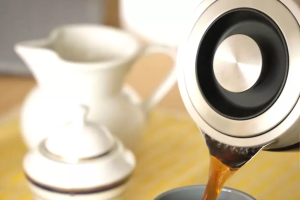Super bus shelter piloted in city

PICCADILLY in Manchester has welcomed the latest in digital technology to form of a super bus shelter.
The shelter is part of a pilot scheme which, if a success, could see the high-tech facilities being rolled out across Greater Manchester.
Transport for Greater Manchester (TfGM), and French firms JCDecaux and RATP, developed the shelter which allows commuters to charge their phones, access wi-fi and keep up-to-date with the latest travel information, all free of charge.
The £300,000 pilot scheme has been entirely funded by the Department for Transport with the aim of reducing carbon emissions, congestion and pollution, and increasing active travel.
Cllr Andrew Fender, chair of the Transport for Greater Manchester committee, said: “One of our key aims is to provide an improved public transport network that encourages more people to choose sustainable and more environmentally friendly ways to travel – especially in the city centre.
“We’ll be asking people who use this bus stop for their views over the coming weeks and more new services and facilities could be trialled here.”
The innovative shelter was created by French company AUREL Design Urbain and is supported by art director Peter Saville, co-founder of Manchester’s Factory Records.
Saville collaborated with TfGM and AUREL to help make sure the shelter’s design fits into Manchester’s surroundings.
Every detail, from the different materials and lighting used to the grass-covered top, is designed to enhance passengers’ overall journey.
Simple adaptations, including wider roofs and dark wood ceiling aim to offer more comfort and protection from the weather than the older design.
As passengers sitting upstairs on passing buses look out of the windows, the planted roof will be both aesthetically pleasing and absorb pollution from the busy city’s transport.
TfGM’s income from digital advertising on the shelters will be reinvested into improving public transport services.
Helena Kavanagh, managing director of Street Furniture at JCDecaux UK, said: “With the technological means now at our disposal, bus shelters can become an integral part of tomorrow’s connected cities, harnessing technology to make shared environments safer, smarter and more environmentally friendly.”
Not only does the shelter positively affect the environment, one passenger commented on how she felt safer when out in the evening.
Commuter Enisa, pictured, said: “It can be scary as a young woman when you’re out alone at night and your phone loses battery.
“I think everywhere should have one of these [bus shelters].
“It improves safety and it is better than having to buy drinks in coffee shops just to use their plug sockets.”
Jamie Farrar said: “It’s a lot better now you can charge your phone.
“It looks better as it doesn’t look like a bus shelter.
“It blends in nicely with the surroundings. I think it’s a really good idea.”







